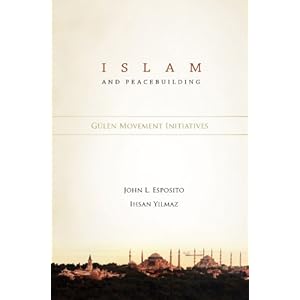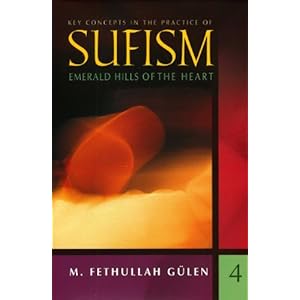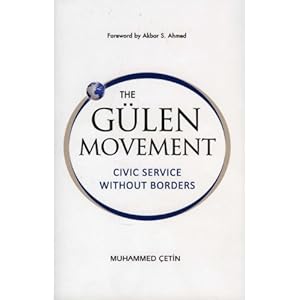Response to CBS's 60 Minutes

Fethullah Gulen is the Honorary President of the Rumi Forum and on Sunday night, May 12, 60 Minutes aired a report on the Gülen movement, which included many positive aspects but also raised allegations and speculation without including responses to those claims.
The segment clearly stated Mr. Gülen’s commitment to education, interfaith dialogue, tolerance and peace. This shows an effort to tell a balanced story, and we commend the producers for that. However, in the interest of factual accuracy, we also believe it is important to share with you some critical information that 60 Minutes omitted, but is relevant to the story.
Regarding allegations of Mr. Gülen’s political aspirations: First and foremost, Mr. Gülen has always advocated for the separation of religion and politics. On many occasions, he has said that if religion is politicized then both religion and politics suffer, but religion suffers more. Many social scientists have stated that the movement Mr. Gülen inspired is spiritual and social in nature; not political. For instance, see the works of Elizabeth Ozdalga, Nilufer Gole, Greg Barton, Paul Weller, Graham Fuller, Muhammed Cetin, Helen R. Ebaugh and John Esposito among others.
According to Dr. James Harrington, professor of law at the University of Texas who studied Gülen’s legal journey, the charges against him involving police infiltration and an Islamic hidden agenda were “painstakingly discredited in a 48-page opinion” by a three judge trial court, which acquitted him. An appellate panel upheld the verdict and subsequently, a plenary appeals court did the same. (Harrington, James Wrestling with Free Speech, Religious Freedom and Democracy in Turkey The Political Trials and Times of Fethullah Gülen, University Press 2011.)
Regarding “state department cables”: The communications referenced in the story were not official statements from the U.S. State Department. These were intercepted communications from and between government employees in the Turkish consulate and embassy offices. These employees were not making official statements but were making comments colored by their own opinion, ideology and local contacts. In contrast, many high ranking officers, elected officials and dignitaries in the United States and throughout the world, have made public statements commending Mr. Gülen for his commitment to intercultural and interfaith dialogue. For examples of such praise, please visit the web site of the Gülen Institute (http://www.guleninstitute.org/testimonials).
Regarding the incarceration of critics: Mr. Gülen has consistently supported freedom of the press and, in a written statement, categorically denied any involvement in the jailing of journalists. Indeed, tens of books defaming Gülen have been in circulation for decades in Turkey, and some of them have been reprinted many times. Their authors continue to speak their minds, write their columns and publish books. One of the most defamatory books against Gülen recently saw its 22nd reprint. Recently, in her book entitled “Is the (Gulen) Community Under Every Stone?,” independent journalist Nazli Ilicak unequivocally refuted such claims against Gulen. See also Harrington’s response to The New York Times:http://rumiforum.blogspot.com/2012/04/response-to-nytimes-setting-facts.html
Regarding the assertion that “followers” regard Mr. Gulen as a “living prophet”: This statement is, first of all, factually wrong and ignorant of the Islamic tradition. In Islam, Prophet Mohammed (peace be upon him) is the last prophet and nobody can assume the title of prophethood after him. Irresponsible and disrespectful use of such a term is grounds for apostasy. The book that popularized this claim, which is circulated in certain fringe blogs, is the worst kind of conspiracy text, going so far as to suggest that Mr. Gülen is being used by the CIA, the FBI and the Vatican to establish an Islamic state in Turkey (Merdan Yanardag, Kusatilan Turkey – Turkey Surrounded, 22nd print, Destek Yayinlari, Istanbul, 2011).
Regarding Mr. Gülen’s role in the movement: The Gülen movement is an open, amorphous and inclusive transnational social movement. According to noted social scientist Helen R. Ebaugh, “Unlike sects or cults that tend to isolate their members from societal involvement while emphasizing strict discipline, authoritarian leadership and the rites of membership, the movement has no formal leadership or hierarchy. It has no procedures, ceremonies or initiation rites for becoming a member. Likewise, the movement has not been regarded as heretical or extreme by the public, the media or the courts, either in Turkey or abroad.” (Ebaugh, Helen R. The Gülen Movement, Springer 2010). Mr. Gulen’s role in the movement is primarily inspirational and motivational through his work and life example.
Unfortunately, not all of the content that 60 Minutes gathered for this piece was included in the televised broadcast, which impacted the editorial balance of the piece. I know that the Turkish American interviewed for the piece was asked questions for a very long period. Only 30 seconds were used.
Additional interviews, including expanded portions of one interview, and a discussion with Mr. Abdulhamid Bilici, director of Cihan News Agency are available in the “Web Extras” section of the show’s website (also on our blog) Additionally, 60 Minutes Overtime, a web-only feature, offered more insight from the perspective of the producer and correspondent Lesley Stahl.
A major component of the story was a highly successful charter school system. For questions regarding this school system please refer to their web site at http://www.harmonytx.org/.
The Rumi Forum remains unwavering in its commitment to gather people of diverse backgrounds together in the spirit of social harmony, mutual trust, partnership and community service. Cooperating with the news media on stories like this is essential in order to advance this mission and to eliminate or reduce false stereotypes, prejudices and unjustified fears.
We have posted additional information on our website, www.rumiforum.org to serve as a resource for people seeking more information. I’d like to thank you for your ongoing support for the Rumi Forum and the positive goals we share. If you have any questions or concerns, please do not hesitate to contact me. I look forward to continuing our work together to achieve a more harmonious world.
Kindest Regards,
Emre Celik
President
Rumi Forum







